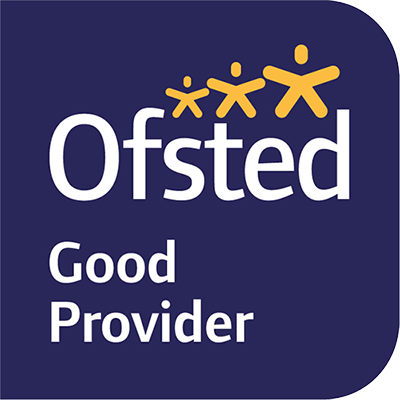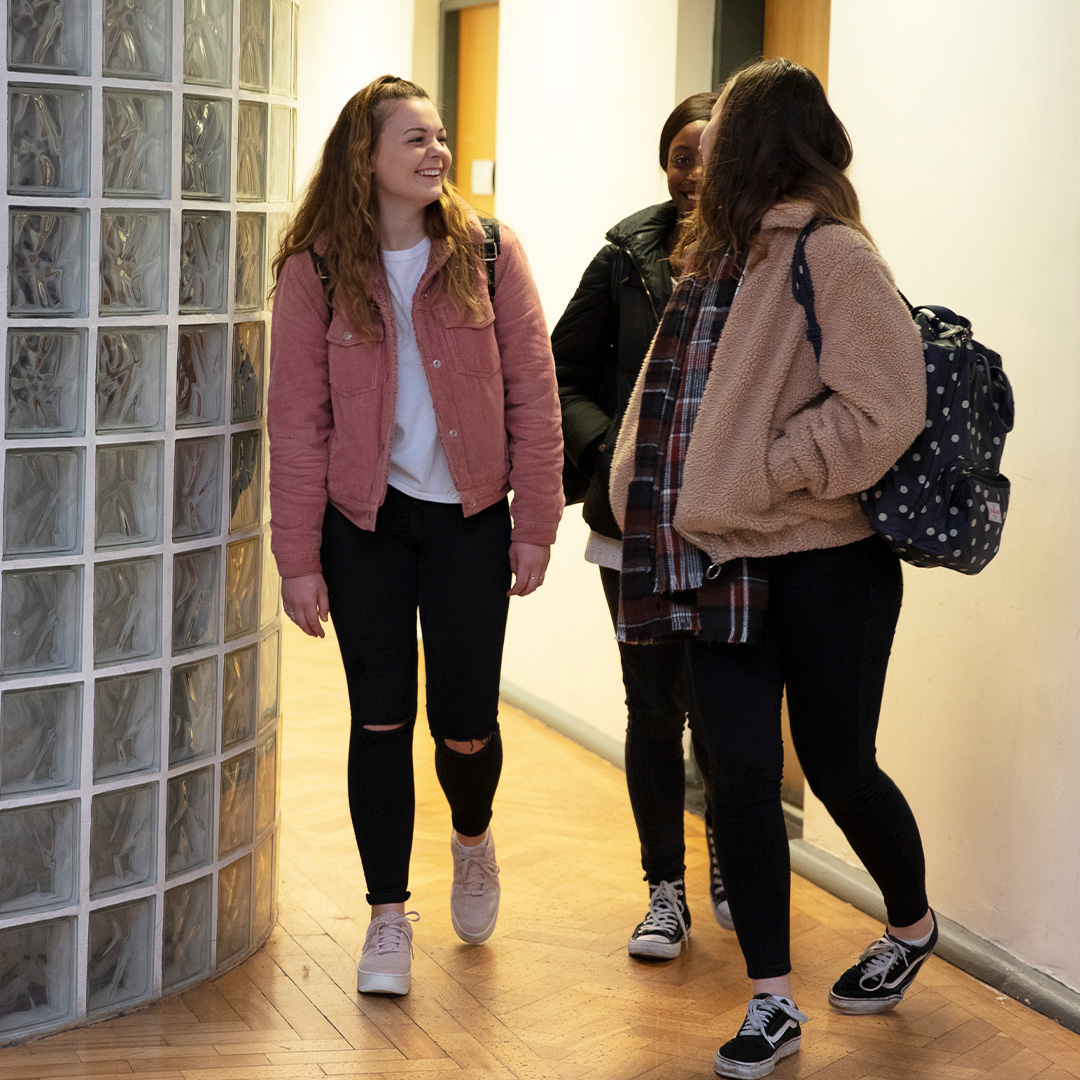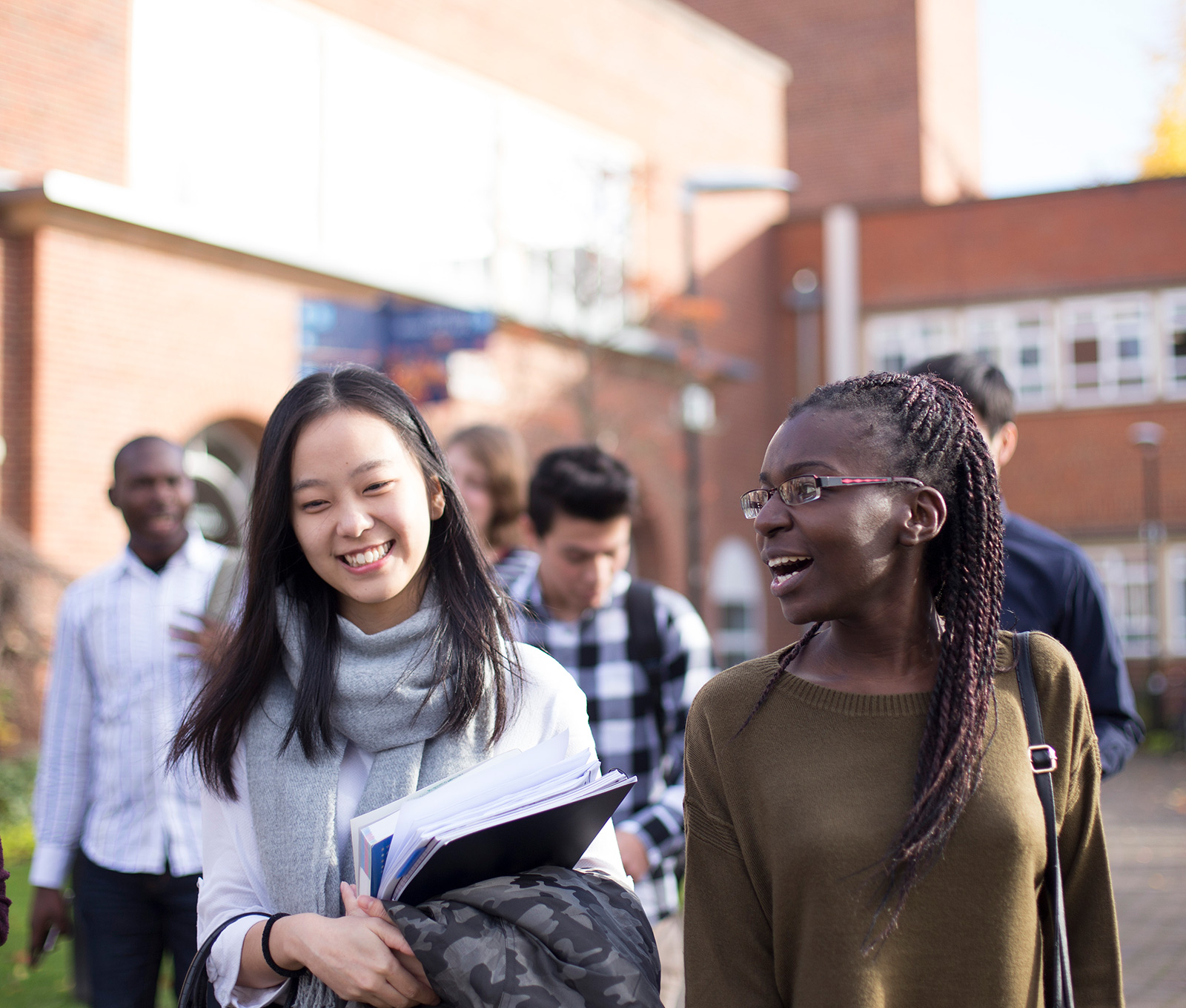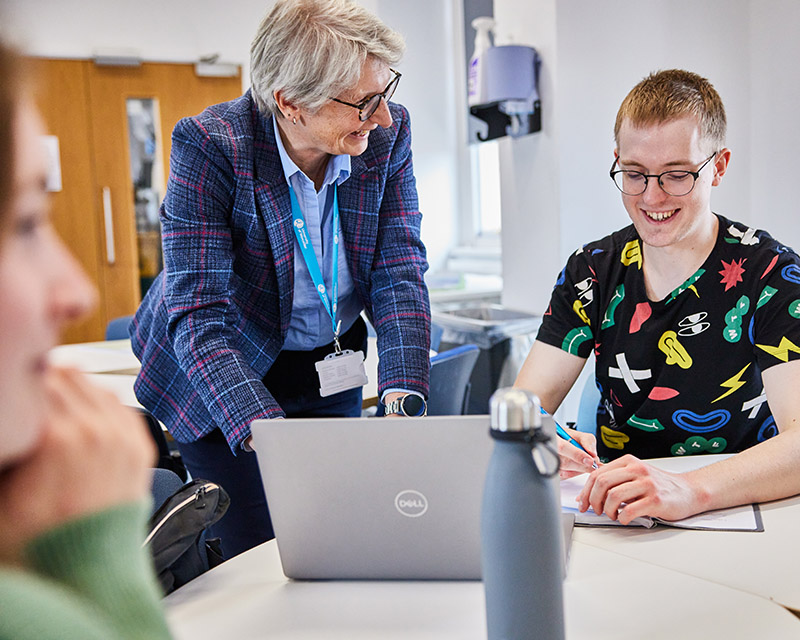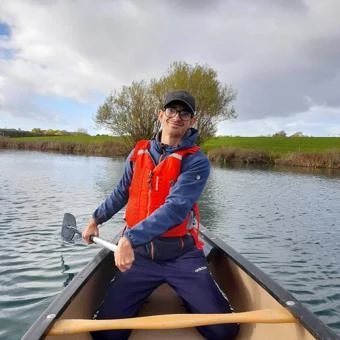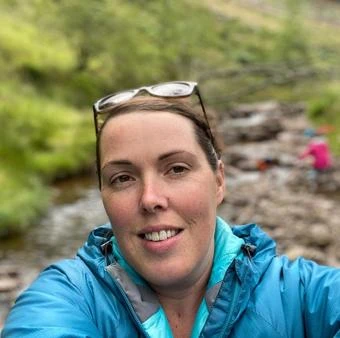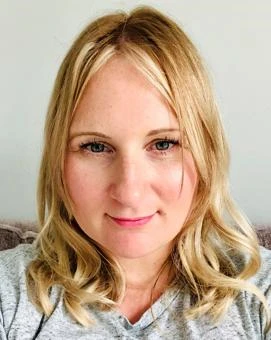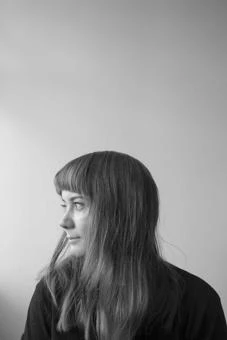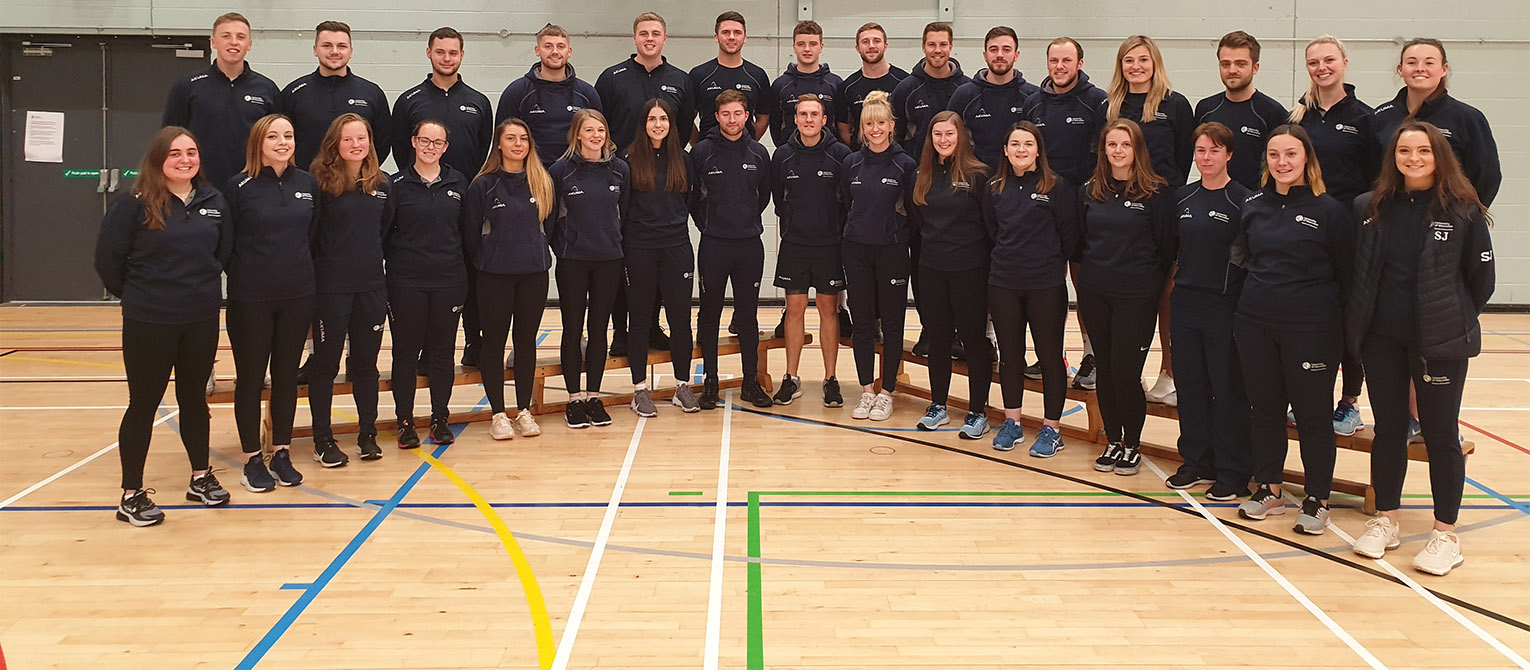We have an excellent reputation for our education courses in the region and have been training highly skilled, inspirational teachers for over 75 years. At Worcester you’ll learn to motivate, challenge and inspire a range of different students.
Joint 1st in the UK for Quality Education
Training bursary available for SEND further education
For the 2025/26 academic year the SEND bursary is £15,000 and there is an English bursary of £10,000. English bursaries are limited to 100 over the year. Information on bursaries for the 2026/27 academic year will be published by the Department for Education in October 2025.
This course is mapped to the National Occupational Standard for Learning and Skills Teacher. The standard is currently the responsibility of the Institute for Apprenticeships and Technical education (IfATE) – soon to be transferred to Skills England.
University of the Year finalist
Recognised for our graduate success, we’re shortlisted for University of the Year in the Times Higher Education Awards 2025.
Overview
Our postgraduate certificate in education (PGCE) will prepare you to become a further education teacher.
You’ll gain experience through placement in a further education setting, whilst receiving tailored tutor support. When not on placement, you’ll be taught through a mixture of lectures, workshops and interactive lesson simulations.
When you successfully complete this course, you will be eligible to apply for QTLS (Qualified Teacher Training and Skills) with the Society for Education and Training. This is an additional qualification that is undertaken after the PGCE. It is equivalent to QTS, the schools sector professional status, and is intended to further support teachers who teach in further education.
Subject Specialisms
Beyond the classroom, we’ll enrich your subject knowledge based on your chosen specialist subject. You will receive at least seven days of subject specialist training and connect with others who have chosen your route. Subject specific training include working in small groups to develop subject teaching skills, for example, analysing your subject curriculum and practising subject teaching strategies.
This means we can offer course teaching places across the breadth of the Further Education and Skills (FES) sector
After your PGCE course, you can progress to qualify for Qualified Teacher Learning and Skills, (QTLS) which is only conferred by the Society for Education and Training (SET).
You need a recognised Level 3 or above qualification in the subject area you are teaching to apply for QTLS.
Placements
You’ll complete a minimum of 18 hours a week on placement over an 8-month period of the course, teaching in a further education setting, so you experience a variety of teaching situations. You may attend placement in a college, work-based learning environment or adult and community setting, with support from university tutors and on-site subject mentors. This experience provides you with further expert subject support.
Course details
Gaining experience is a substantial and integral part of the course, and you will complete an average of three days a week on placement.
Indicative themes explored through the course content are outlined below, although regular updates mean that exact modules may differ.
We regularly review our courses to reflect the latest research and developments in the subject area, as well as feedback from students, employers and the wider sector. As a result, modules may change to ensure the course remains current and relevant.
Careers
This course will support you to teach in various further education settings across the UK. Most of our students quickly find jobs after graduation, thanks to the confidence they’ve gained on the course, the connections they make on placement and our excellent reputation we have in the Midlands region.
Our graduates also pursue leadership roles, as special educational needs coordinators, curriculum leaders and college directors.
The PGCE is an internationally recognised teaching qualification and can widen your opportunities for a career overseas. You’ll be able to seek work in countries such as America, Australia, and Canada.
Course highlights
Teaching and assessment
Teaching is a mix of interactive seminars, classroom simulations and one-to-one tutorials – alongside this you’ll be supported by university staff and mentors when out on placement. Your assessments will prepare you for a career as a teacher, and include creating a scheme of work, delivering a presentation, and writing reflective essays.
Teaching and assessment contents
The majority of teaching sessions will be face to face. 6 days will be dedicated as multimodal learning or synchronous online learning. Typically contact hours for the centre-based training will be structured around:
- Interactive small group seminars on campus
- Practical skills sessions on campus
- Scheduled online lecture/discussions
In addition, you will be expected to engage in tutorials, online research, completing learning activities and accessing learning materials each week. This includes independent study preparing for assessments.
Meetings with Personal Academic Tutors (subject tutors) are scheduled usually once every month. Tutors also visit you in your settings to quality assure the process and offer tutorial support.
Meet the team
You will be taught by a teaching team whose expertise and knowledge are closely matched to the content of the modules on the course.
You can learn more about the staff by visiting our staff profiles.
Entry requirements
Honours degree, normally 2:2 or higher from a United Kingdom higher education institution or equivalent qualification, in a relevant subject area. Applicants with a 3rd class degree will be considered on an individual basis.
As a postgraduate course, a first degree is required. However, you can apply to teach a subject if you have a Level 3 qualification in the subject you wish to teach, for example, if you have a Level 3 qualification in English (A level) and an Honours degree in Sociology and apply to teach English.
GCSE grade C/4 in English Language or English Literature and Mathematics, or equivalent qualifications. We do offer an equivalency test if you don’t have the required GCSE grade to apply for our courses.
Trainees who begin courses before providing evidence of the required GCSE standard (or equivalent) will not be eligible for financial incentives, such as bursaries or grants until they achieve the required standard.
Any questions?
If you have any questions about entry requirements, please call our Admissions Office on 01905 855111 or email admissions@worc.ac.uk.
Fees
Fees contents
UK students
The standard tuition fee for full time UK students enrolling on a PGCE in the academic year 2026/27 is £9,790 per year (subject to changes in the government tuition fee cap).
Tuition fees are reviewed annually and may increase each year for both new and continuing students.
For more details on course fees, please visit our course fees page.
International and EU students
The standard tuition fee for full time international and EU students enrolling on a PGCE in the academic year 2026/27 is £18,400 per year.
*Please note that for EU students who are not in receipt of a UK government bursary/scholarship package, the fee is £9,790 per year (subject to changes in the government tuition fee cap).
For more details on course fees, please visit our course fees page.
Case studies
How to apply
How to apply contents
Applications for PGCE courses, should be made online through the government's Find Postgraduate Teacher Training website. The course code for Further Education is WR38.
Visit the Get Into Teaching website for detailed information on how to apply for a PGCE.
Start your application
Apply PGCE Further EducationContact
If you have any questions, please get in touch. We're here to help you every step of the way.

Admissions Office
admissions@worc.ac.uk01905 855111More to explore
Open Days
Visiting us is the best way to get a feel for student life at the University of Worcester.

The City of Worcester
Worcester is a welcoming university city with great transport links and plenty of student parking.

Accommodation
Benefit from our accommodation guarantee. We have rooms on campus to suit every budget including en-suite options.


